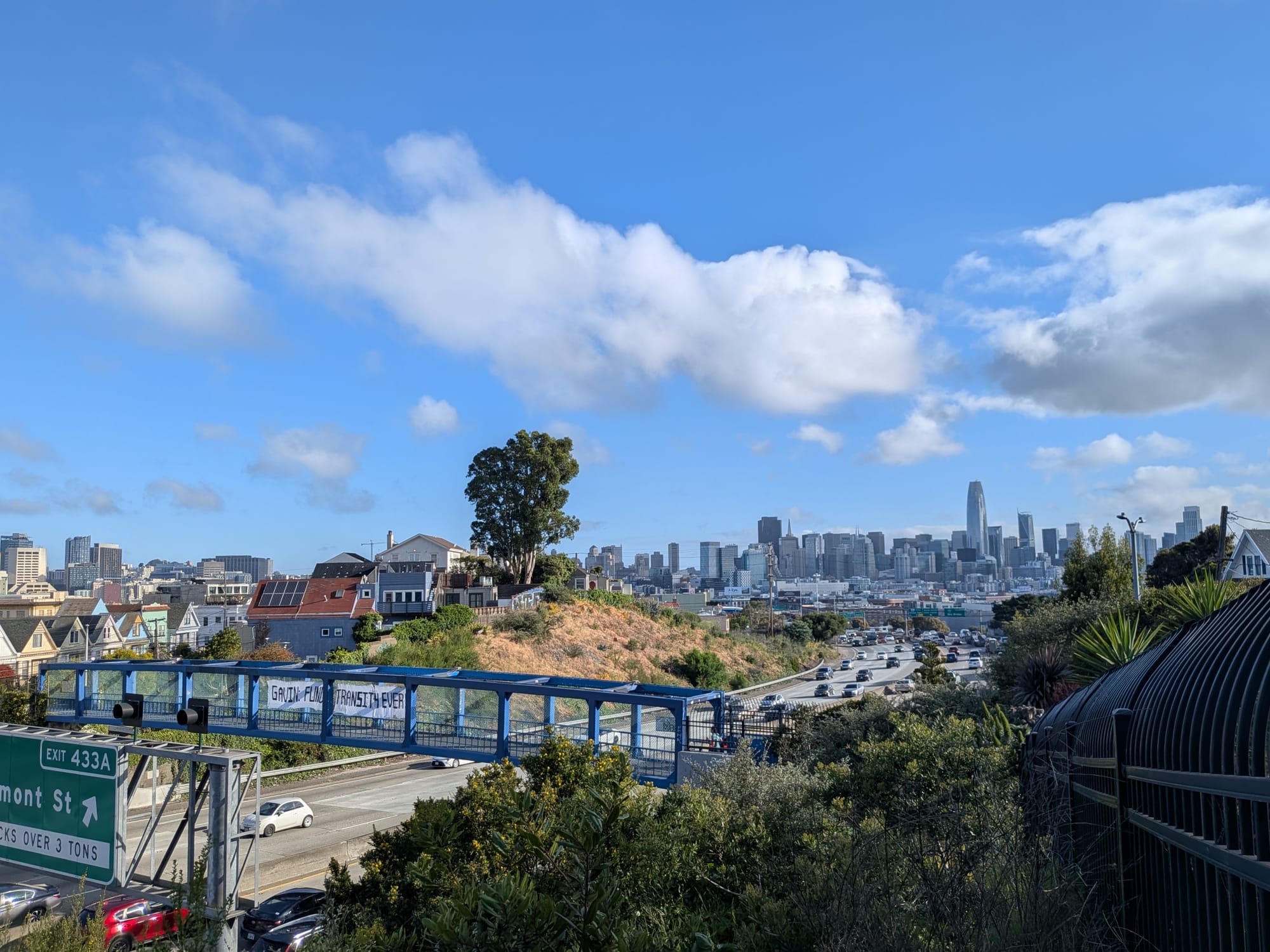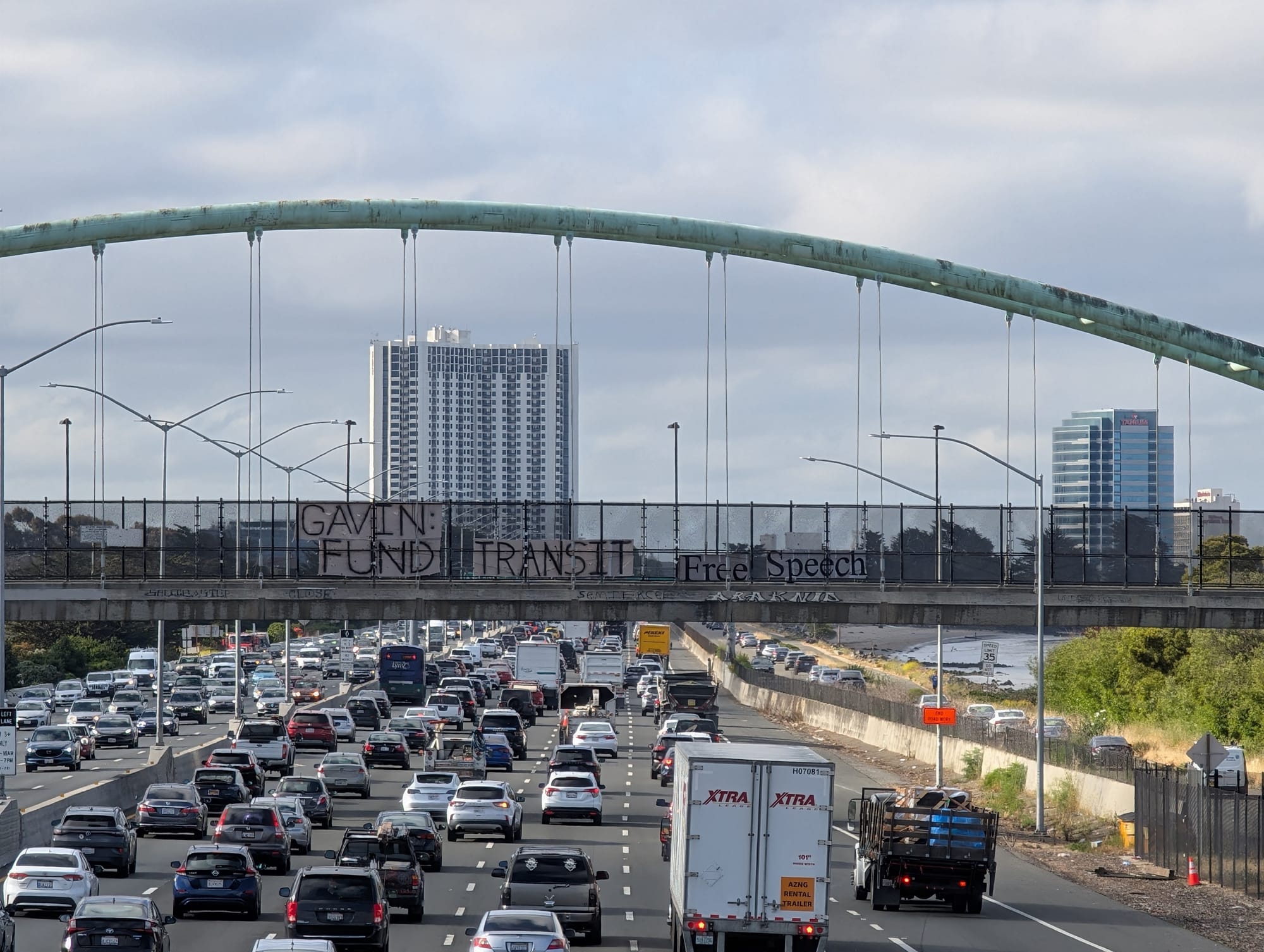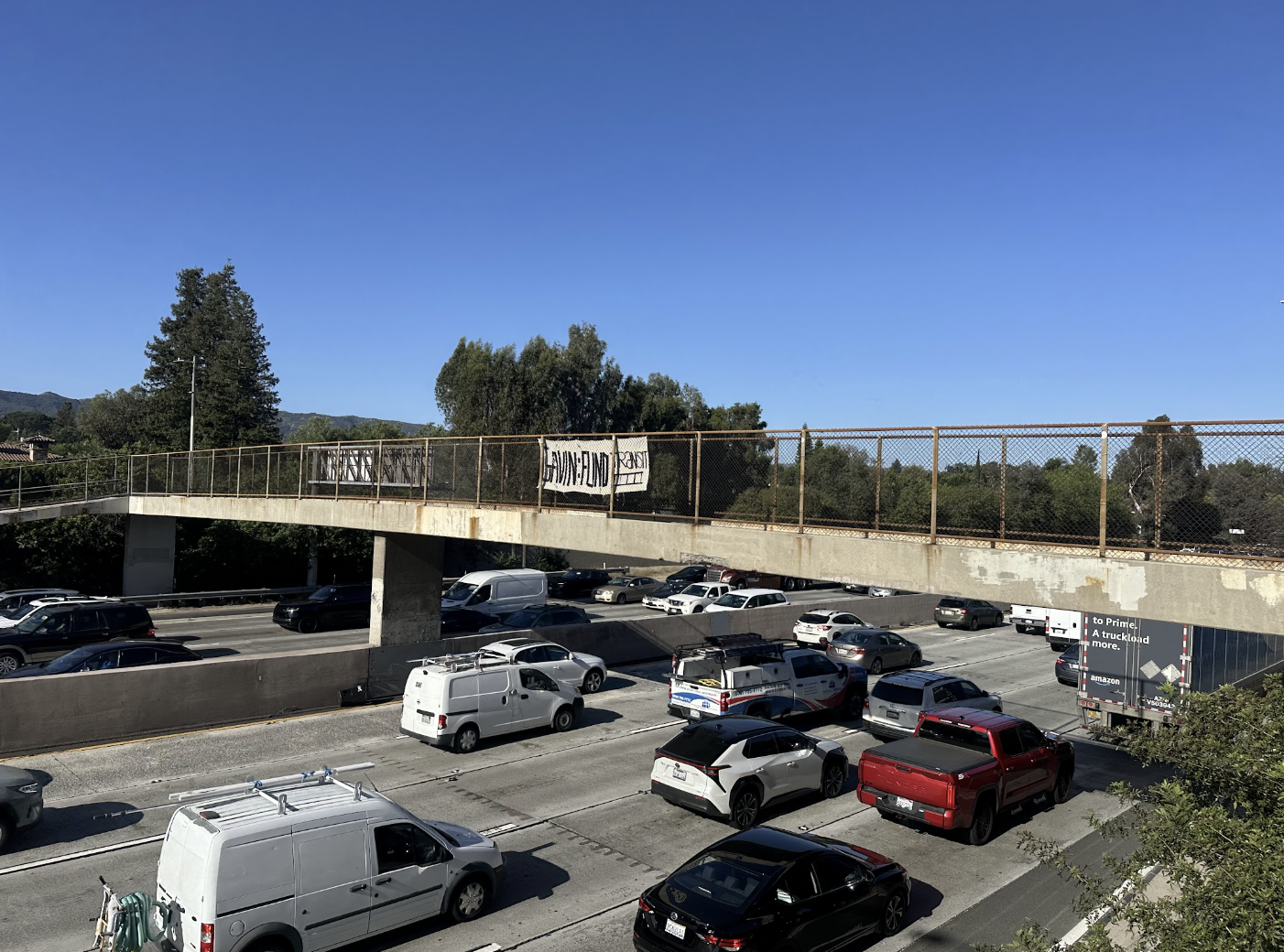Californians Say NO to Public Transit Funding Cuts

Thousands of commuters across California started last week as usual, driving to work, stuck in traffic. They may have noticed one change to their trip – a large banner draped from a bridge above demanding Governor Newsom fund public transit.
Safe Street Rebel activists led one banner drop above Highway 101 in San Francisco. In total, twelve coordinated actions on May 13th reached commuters in SF, San Jose, Los Angeles, Davis, Hayward, and more. Our demand is clear: fund public transit, fund it sufficiently, and fund it now.
In total, the governor and state legislature need to allocate $2 billion to public transit funding in the upcoming budget. These funds are vital to keeping our buses, trains, boats, and streetcars running – and to the basic function of our state.

Despite calls from transit users statewide, Gavin Newsom issued his “May revise” of the budget last week, an even worse attempt at a supportive, fair budget. Not only does the budget fail to include the $2 billion necessary to keep transit running, but it claws back on capital funds necessary for technology upgrades, the Downtown Rail Extension (DTX) project, and BART repair work, vital operating funding, and cap-and-trade funding. All of these funds were already won by advocates in years prior and are being taken away to cover other budget items. If this budget were passed today, transit systems would not only roll back service, but spiral towards nearly unrecoverable operational cuts.
Without money, agencies such as Muni, BART, Caltrain, and more could be forced to reduce frequencies, close stations, and end night service as early as this summer. These reductions aren’t hypothetical – Muni has already released their plan to roll back service on several lines, including eliminating Market Street service on the 5, 9, and 31 routes while combining the 6 and 21 routes. Changes are set to go into effect on June 21st.
Service cuts aren’t just a present annoyance, but a threat to the long-term existence of public transit. Countless data have demonstrated that service reductions leave riders looking for other options, thereby reducing fare revenue. Faced with a smaller budget, agencies then make more cuts, repeating the cycle. This “transit death spiral” could not come at a worse time for Californians. The cost-of-living is already crushingly high and rising, with cars costing up to $15,000 a year, and the Los Angeles fires serve as a grim reminder of the dire climate crisis. Residents are suffering today, and the state’s decision on whether or not to fund public transit could alleviate or worsen that struggle.
We don’t need to imagine what a state without public transit looks like – we’ve seen it before. Facing a technical error, BART suspended service systemwide last Friday, leaving more than 170,000 daily riders stranded. Many riders then turned to their second choice of getting to work, driving, which caused issues almost immediately. Traffic on the Bay Bridge was gridlocked, commuters were late to work or missed shifts entirely, and frustration swelled by the minute. This could become the daily norm without funding.

Riders understand the necessity of public transit all too well. From promoting economic equity to postponing the devastating effects of the climate crisis, we understand the importance of well-funded public services. Much like the BART shutdown, the banner drop served as a reminder to drivers that they, too, have a stake in the crisis. Reduced service will increase cars on the road, subsequently worsening traffic, increasing crashes, and making it even harder to find parking.
From the Los Angeles wildfires to increasing traffic on our roads, California has proven itself unable to survive without well-funded public transit systems. Governor Newsom and the state legislature must step in immediately to support Muni, BART, Caltrain, and more, before it is too late.
Send a letter to your state legislators demanding that they fund public transit statewide.